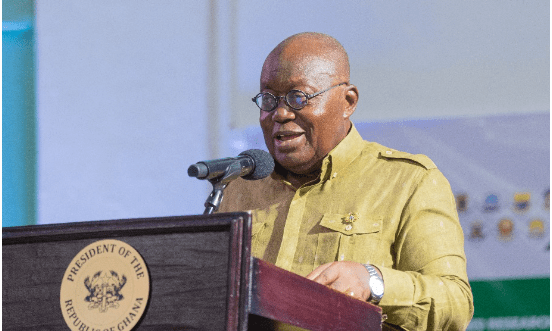President Nana Addo Dankwa Akufo-Addo has highlighted the vital importance of collaboration between universities, industry, and government as a cornerstone for national development.
Addressing the 3rd Applied Research Conference of Technical Universities in Ghana (ARCTUG 2024), held in Sunyani, the President stressed that this tripartite partnership is essential for fostering innovation and entrepreneurship.
The conference, themed “University, Industry, and Government Partnership for Accelerating Innovation and Entrepreneurship for National Development,” provided a platform for discussing how these sectors can work together to address contemporary challenges and leverage opportunities for economic growth.
In his speech, President Akufo-Addo underscored the pivotal role of technical universities in fostering innovation and entrepreneurship. He emphasized that these institutions should serve as breeding grounds for new ideas, incubators for young talent, and laboratories for technological advancements. By focusing on applied research, technical universities can bridge the gap between theoretical knowledge and practical application, thus contributing directly to industry and societal needs.
“Universities, especially technical universities, should evolve and adapt to the changing dynamics of the global economy,” President Akufo-Addo stated. He highlighted the need for curricula that are not only relevant but also anticipatory of future trends and demands. This involves nurturing a culture of critical thinking, creativity, and problem-solving among students.
The President also called for stronger engagement between universities and industry partners. He emphasized the importance of establishing mutually beneficial relationships to align research with real-world challenges and opportunities. Such collaborations, he noted, enhance the educational experience of students while providing businesses with access to cutting-edge research and fresh perspectives.
President Akufo-Addo stressed that the partnership between industry and academia is not a one-way street. While universities provide the talent and research needed by businesses, industry, in turn, should invest in education and research. This can include funding research projects, providing scholarships, and participating in the governance of educational institutions.
“Industry leaders should actively shape the educational agenda by communicating their needs and expectations to universities,” he said. This collaboration ensures that curricula are responsive to the evolving demands of the marketplace and offers students practical experience through internships and apprenticeships.
The President also highlighted the critical role of government in facilitating and strengthening these partnerships. As policymakers, the government should create an enabling environment that encourages collaboration and innovation. This involves providing adequate funding for education and research, enacting policies that support entrepreneurship and innovation, and promoting a regulatory environment conducive to business growth.
President Akufo-Addo pointed out the significant investments his administration has made in research and book allowances, with over GH¢700 million disbursed since 2020. These investments, he said, underscore the government’s commitment to advancing education and research in Ghana.
Additionally, the President called for the commercialization of research, providing funding and incentives for the development and scaling up of new technologies. This, he noted, not only stimulates economic growth but also ensures that the benefits of research and innovation are widely shared.
The President concluded by urging all stakeholders to strengthen their partnerships and work collaboratively to advance Ghana’s development through innovation and entrepreneurship. “Together, we can build a brighter future for our nation, characterized by innovation, inclusivity, and prosperity,” he said.


